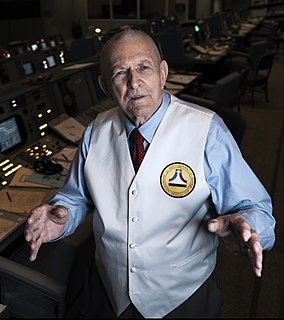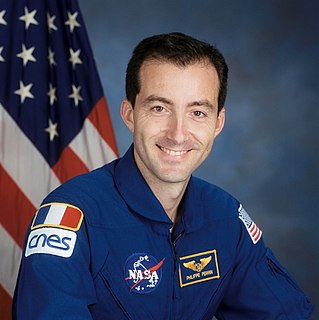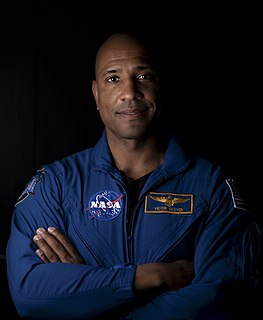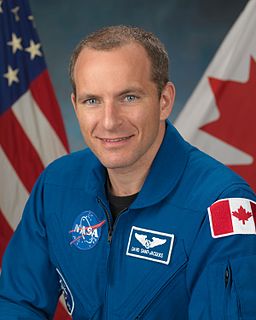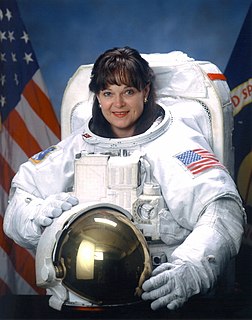A Quote by Shannon Walker
I'm so proud to represent my hometown on the International Space Station where we conduct scientific research that can benefit all of humankind.
Related Quotes
Because now, you know, it's going to be a number of years yet before we have our own new boosters and new spacecraft to go to our own International Space Station and proceed with all the research that we spent $100 billion putting up there to give us that research capability for the future for people right here on Earth.
When Russians were having troubles, the Space Shuttle supported the Space Station Mir bringing up much needed supplies and replacements, critical spares, really. That they were able to keep their space station going for much longer than they would have without us. So, I think that shows the value of international cooperation.
We were trying to do as much science as we could because that was the main purpose of the international space station. But without the shuttle to bring up heavy laboratory equipment and bring back samples, we were limited by what we could do, but I was proud that we actually accomplished more science that was planned for the flight. And I got a chance to do two Russian spacewalks on that flight, I had become an expert in U.S. spacewalks and using U.S. suits and techniques, and this was a chance to put on a Russian Orlan suit and do two construction space flights outside of the space station.
Language is inherently not concerned with logic. As an expression of the psychological activities of humankind, it simply follows a linear process as it seeks actualisation. Moreover, it does not obey the objective concepts of time and space that belong to the physical world. When the discussion of time and space is imported into linguistic art from scientific aims and research methods, that linguistic art is entirely reduced to trifling pseudo-philosophical issues.
Half of one per cent of the U.S. budget is space-related stuff. In Canada, we spend more on dog foodScreen Shot 2015-08-19 at 2.39.35 PM. Space flight is intrinsically international and very modern. It's like a co-op. Every country provides services. In Canada, we have a focus on robotics in the shuttle and space station. In exchange, we get research time for our scientists and astronauts' flights. Our contribution is as a junior partner.
One of the things that makes it so challenging is that we're constructing the Station hundreds of miles above the surface of the Earth and we're doing it one piece at a time For the International Space Station we do not have the privilege of assuming the Space Station is on the ground before we take it up one piece at a time. So we have to be very clever about the testing that we do and the training that we do to make sure that each mission is successful, and that each piece and each mission goes just as it's planned.
The space station mission was kind of the culmination of all of my experience of being a NASA Astronaut, so it had brought all of my previous experience into play. I had to learn the Russian language to a fluent level so that I could function as the co-pilot of the Soyuz Spacecraft that we flew up and back from the space station. And then the challenge of being the Commander of the whole expedition, a six and a-half month flight aboard the international space station. I felt the burden of the whole mission on my shoulders, which was fine, and fortunately everything did go well.


